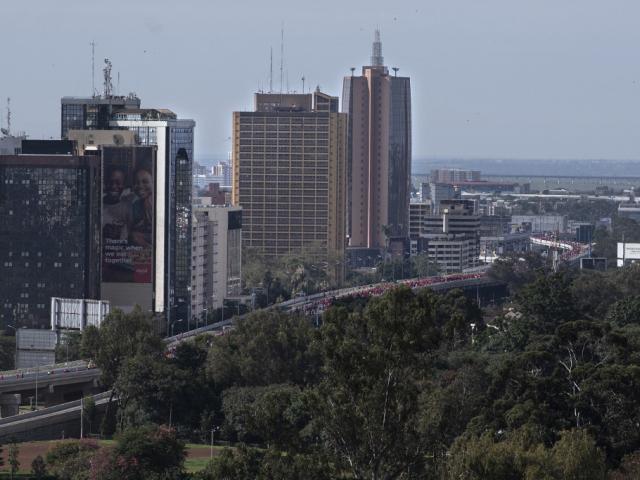IN SHORT: Social media posts have claimed that snakes and crocodiles were swept away from the Nairobi Snake Park during the recent floods. However, these alarming claims have been denied by the museum.
In early May 2024, claims circulated on social media that crocodiles and venomous snakes had escaped from the Snake Park in the capital, Nairobi. This followed heavy rains and flooding across Kenya.
One Facebook post reads: “Heavy rains in Nairobi have swept venomous snakes and crocodiles from the Snake Park located within the Museum. Kenyans advised to be vigilant.” A similar claim was also made on TikTok.
The claim can also be found here and here. (Note: See more instances listed at the end of this report.)
But is it true? We checked.

Context of the claim
With the onset of the long rainy season in late March, unusually high levels of rainfall affected the entire country and neighbouring regions in East Africa. The Kenya Meteorological Department has issued flood risk advisories.
The heavy rainfall has mainly been linked to the Indian Ocean Dipole, a natural weather event. Other causes have been attributed to human-induced climate change.
The rains have continued into April and May, causing severe flooding across the country. Nairobi has experienced some of the heaviest rainfall, leading to blocked roads, damaged infrastructure and submerged homes.
Official reports show the devastating impact across the country, with 229 deaths, 174 injured and some 234,685 people displaced by the floods as of 6 May.
The Nairobi Snake Park
On 30 April, the media reported that floods had swept snakes into homes in a village in Busia county in western Kenya. Soon after this event, claims began that snakes and crocodiles had been swept away from the Snake Park in Nairobi.
The Nairobi Snake Park and Aquarium is located next to the Nairobi National Museum near the city centre. It is a tourist attraction, a research facility and a rescue and rehabilitation centre for reptiles. It has several species of snakes as well as crocodiles, tortoises, lizards and terrapins.
False claims can trigger public panic
The National Museums of Kenya, which manages the Snake Park, posted a public statement on its social media pages on 2 May.
The statement confirmed that all its living exhibits were safely housed. The mainstream media went on to report that the museum had debunked these claims.
The claim that heavy rains swept away venomous snakes and crocodiles from the Snake Park at the Nairobi National Museum is false.
Such false claims can cause panic and fear, and lead to misallocation of resources such as emergency response or wildlife control.
The claim that heavy rains have swept snakes and crocodiles out of the park also appears here, here, here, here, here, here and here.
Republish our content for free
For publishers: what to do if your post is rated false
A fact-checker has rated your Facebook or Instagram post as “false”, “altered”, “partly false” or “missing context”. This could have serious consequences. What do you do?
Click on our guide for the steps you should follow.
Publishers guideAfrica Check teams up with Facebook
Africa Check is a partner in Meta's third-party fact-checking programme to help stop the spread of false information on social media.
The content we rate as “false” will be downgraded on Facebook and Instagram. This means fewer people will see it.
You can also help identify false information on Facebook. This guide explains how.




Add new comment